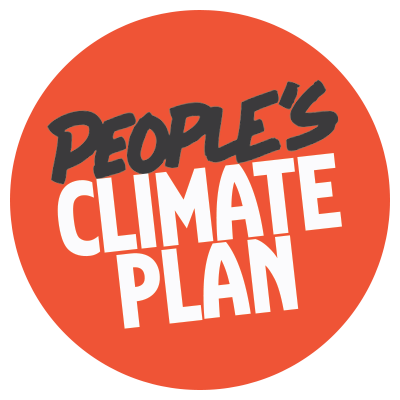Blog by Amanda Harvey-Sanchez
Over the past couple of months, communities across Canada have been coming out to the federal climate town halls to advocate for the People’s Climate Plan. We’ve seen teachers, doctors, parents, and grandparents calling for ambitious climate action. Even tar sands workers are demanding a just transition to a renewable energy economy.
Over 6,000 people have spoken out across the country to ensure Trudeau’s climate strategy aligns with climate science, builds the new economy, and does so in a way that is just for both workers and Indigenous Peoples.
One group of people that has a significant stake in the outcome of these discussions — and that took a leading role in getting their communities organized all across Canada — is youth. Here are some of the reasons that young people have come out to the climate town halls and support the People’s Climate Plan:
Young people will experience many of the worst effects of climate change
“It’s going to impact the rest of my life; the kinds of decisions I can make, the kind of world I can live in. It’s going to augment other social problems which we already have. Our lives are not going to look like our parents’ lives, because of climate change. For me, it was important to become involved because I knew this, and it’s very scary.” – Hannah Mills, age 23, Halifax, Nova Scotia
“We have lived with climate change our whole lives and will live with even worse effects for the rest of our lives and our childrens’ and grandchildrens’ too if this is the rate at which the world is taking on the issue. Climate change takes away our generation’s’ ability to idleness and to live life exactly as we want to because we have to deal with extreme weather events at all corners of the planet […]. That is why it is important that we fight to right our lives and the lives of those who come after us. This is our world war, this is the issue that many of our generation and those afterwards will be losing our lives to.” – Lily Barraclough, age 18, Toronto, Ontario
Youth are aware of the ways climate change harms marginalized communities
“Climate change is an issue that impacts all of us, but through my research I’ve learned that marginalized populations usually feel the harshest impacts. […] Ensuring that systematically oppressed populations have a strong say in addressing climate change will not only ensure that the Canadian government engages more of our population, but will also bring together communities to solve a common problem. Fighting oppression can empower the voices of traditionally marginalized individuals and shape a more sustainable world.” – Devon Fernandes, age 23, Toronto, Ontario
“The human casualties from environmental disasters are only going to go up, and as always the less privileged are bearing the consequences. Protecting the planet and fighting climate change is not only a necessity for our basic needs in the future, it is also a matter of social justice.” – Esther Perrin, age 20, Montreal, Quebec
They want to see a clear stance from the government, not half measures
“They [the federal government] are still not really even talking about climate change in a way that is realistic. The fact that they are considering building these pipelines, like Energy East – they can’t build that and keep the commitments that they’ve made in Paris. They can’t. The fact they are even considering it, to me, 1) that’s a waste of time and energy, and 2) it’s sending Canadians the message that there is something rational about considering that. I think the sooner that the government can present people with options in green energy and in green jobs, and the sooner we are weaned off this idea that we can have oil and green energy, the better it will be. That has to come. I’d like to see more MPs, Liberal MPs, standing up after they’ve done these consultations, and taking a stance on some of these pipelines. Individual MPs can do that, it’s their job.” – Hannah Mills, age 23, Halifax, Nova Scotia
As a young person myself, I stand by the words of my peers. At age 20, I have most of my life ahead of me, but my future rides on the decisions Prime Minister (and Youth Minister) Trudeau will make regarding climate change. For Indigenous communities in Canada and abroad, Trudeau’s action (and inaction) already has huge impacts. Real climate action is more than saying the right thing at a press conference. It means keeping fossil fuels in the ground, building a new, renewable energy economy, and ensuring justice for Indigenous communities and transitioning fossil fuel workers.
